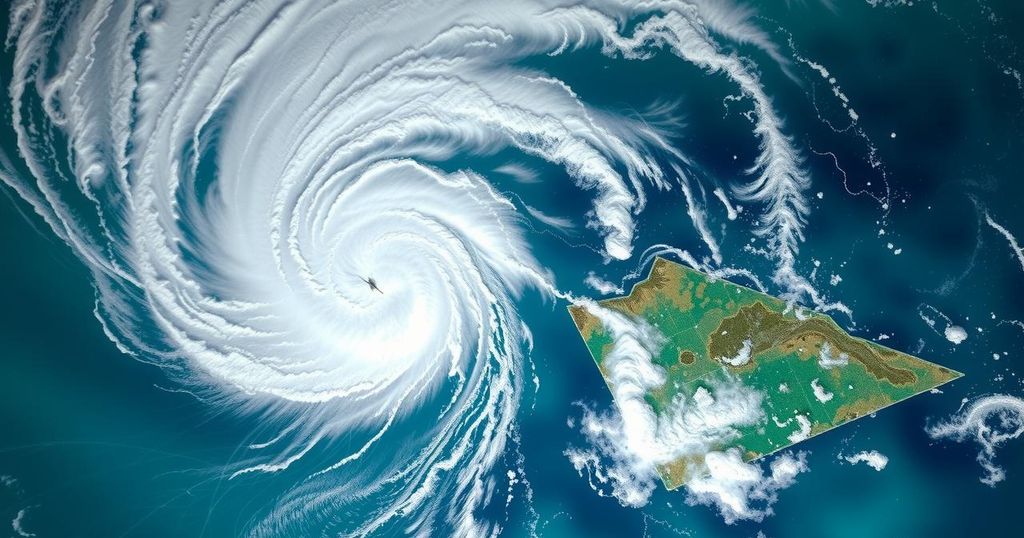Mayotte Struck by Tropical Storm Dikeledi Amid Recovery from Cyclone Chido

Mayotte has been significantly affected by Tropical Storm Dikeledi, just weeks after Cyclone Chido caused devastating destruction. Residents have been advised to seek shelter and stock essentials as the storm poses risks of flooding and landslides. The territory’s infrastructure is still reeling from previous damage, necessitating emergency measures and shelters to support those in need. Public sentiment toward the French government’s response continues to be critical amid ongoing recovery efforts.
The French territory of Mayotte has once again faced severe weather, as Tropical Storm Dikeledi struck the islands on Sunday, only weeks after the devastating Cyclone Chido caused unprecedented damage. Authorities have urged residents to stay indoors or seek sturdy shelter and stock up on essential supplies, highlighting the dire situation exacerbated by the recent cyclone that left significant destruction across numerous neighborhoods. Dikeledi, which had previously impacted Madagascar as a cyclone, was forecasted by Meteo-France to potentially regain strength. Despite Dikeledi being downgraded upon reaching Mayotte, the red alert remains in effect due to the high risk of flooding and landslides. Emergency shelters have been opened for those in need, and access to the already damaged international airport has been suspended. In light of the destruction caused by Cyclone Chido, which resulted in numerous fatalities and widespread injuries, officials are prioritizing safety measures for the vulnerable population, particularly in the hard-hit areas near the capital, Mamoudzou. The local residents have expressed dissatisfaction with governmental assistance, feeling neglected, especially in the wake of such catastrophic events, prompting strong reactions toward officials, including French President Emmanuel Macron, during his visit.
Mayotte is a French overseas territory located in the Indian Ocean, characterized by a significant population density and economic challenges, making it the poorest department in the European Union. The region traditionally experiences cyclone season from November to April, with increasing frequency and severity of storms in recent years. Cyclone Chido’s impact in December 2023 was especially devastating, resulting in extensive loss of life and damage to infrastructure. The community comprises both documented residents and a significant number of undocumented migrants, creating additional complexities in disaster response and recovery efforts. Dikeledi, the current storm, poses further risks to a region still grappling with the aftermath of Chido.
The repeated inclement weather faced by the islands of Mayotte, including the recent strike by Tropical Storm Dikeledi shortly after the catastrophic Cyclone Chido, has highlighted the vulnerabilities of this French territory. The situation remains critical, with authorities implementing emergency measures to protect the population from anticipated flooding and landslides, while also addressing the growing needs of a community still recovering from significant trauma and destruction. As climate conditions evolve, the prospects for future resilience and recovery are paramount to safeguarding the lives of Mayotte’s inhabitants.
Original Source: www.wral.com






